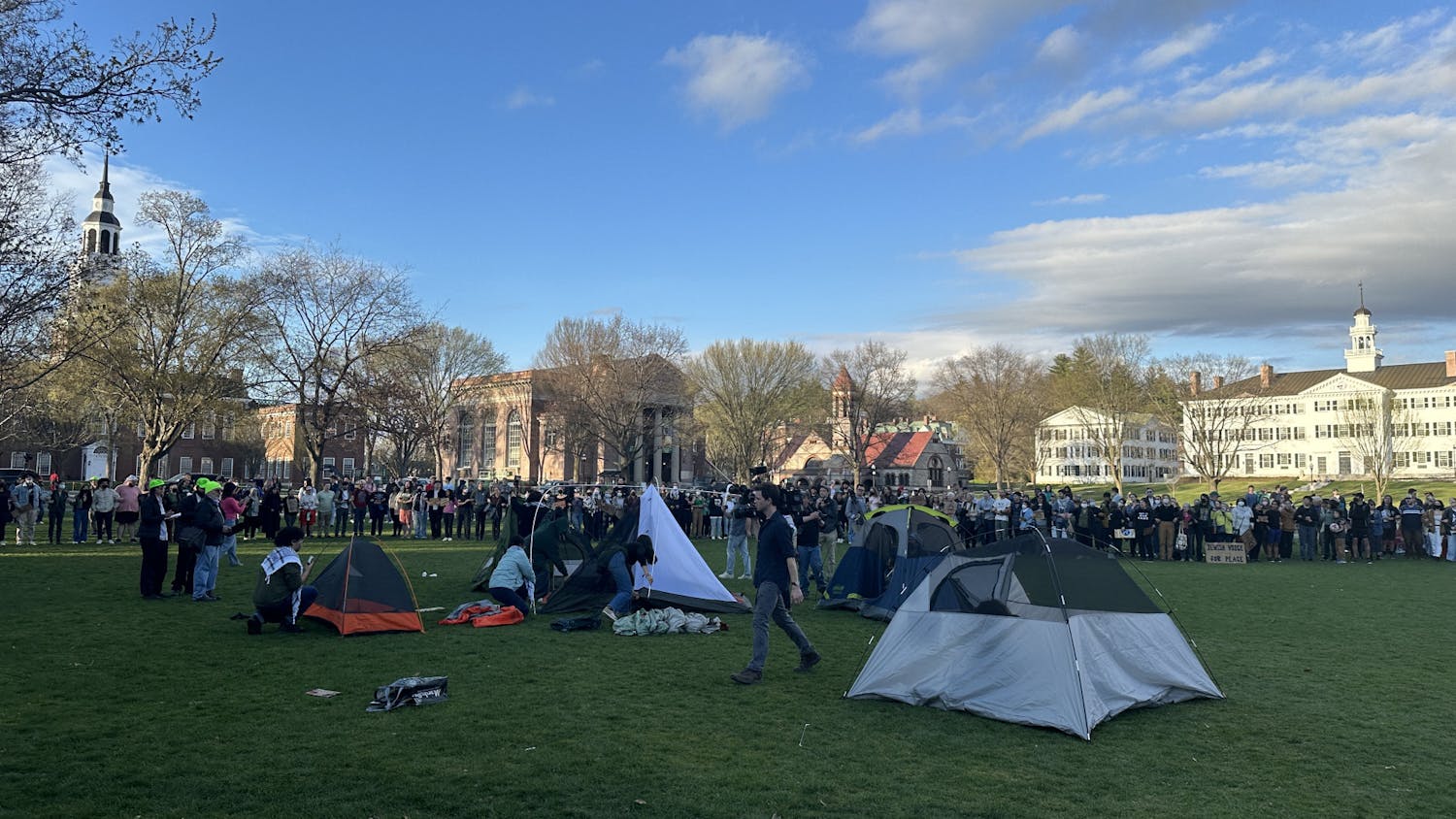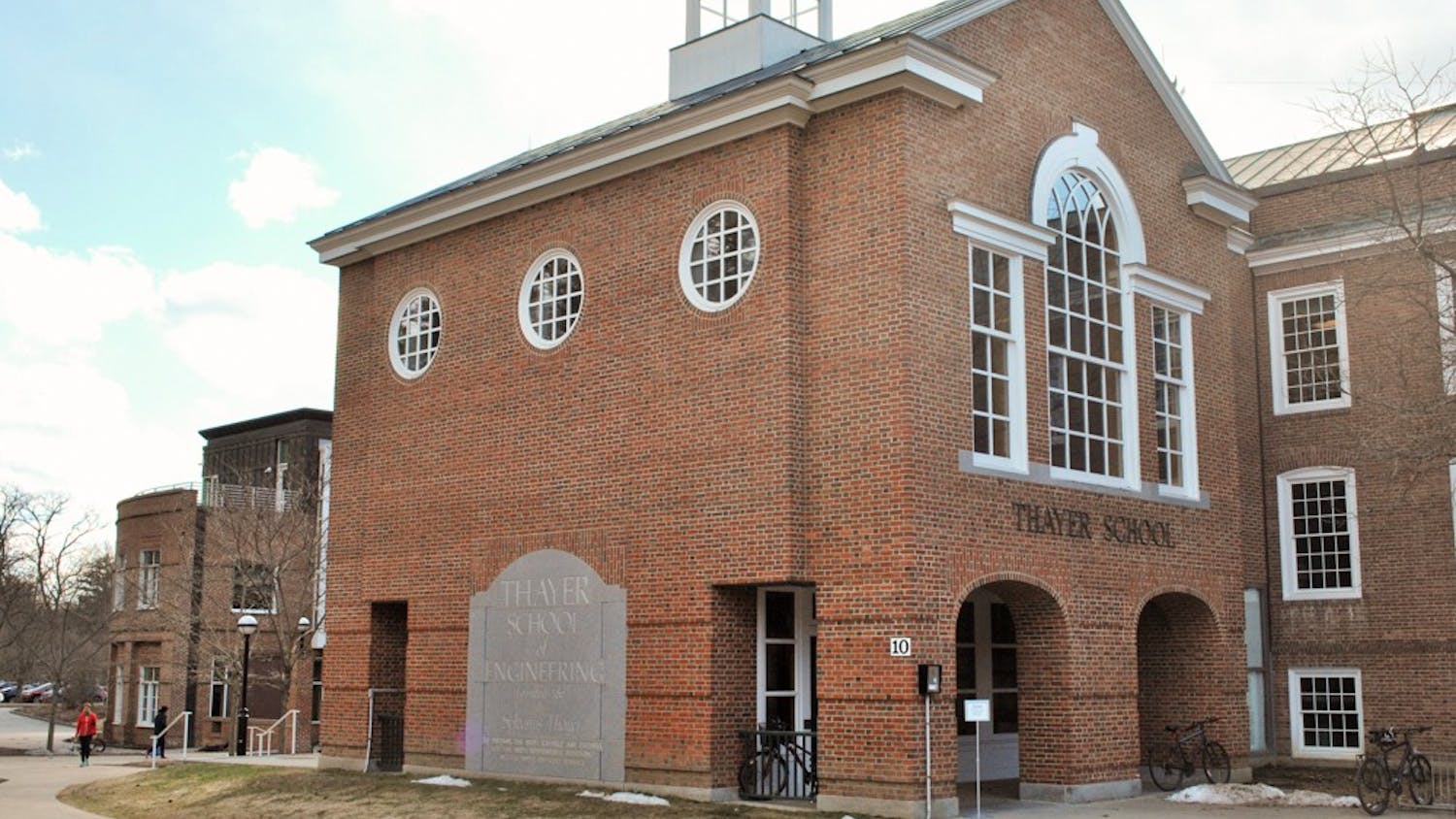Dartmouth was ranked 98th up 29 spots from last year in Forbes Magazine's 2009 ranking of "America's Best Colleges," according to Forbes' web site. The College rose from eighth to seventh among Ivy League schools.
In the wake of last year's rankings Forbes first foray into university rankings Dartmouth students and officials criticized Forbes' methodology, alleging that it unjustifiably lowered Dartmouth's rank.
Forbes' rankings are calculated from seven categories. The number of alumni listed on Who's Who in America accounts for 12.5 percent of the rating, while 12.5 percent is based on salaries of alumni from PayScale.com. Another 25 percent is from student evaluations on RateMyProfessor.com; 16.6 is percent based on the four-year graduation rates; 8.33 percent is based on students receiving nationally competitive awards; 5 percent comes from the amount of faculty members receiving awards for scholarship and creative pursuits and 20 percent comes from the four-year debt load for typical student borrowers.
"We are still absorbing and analyzing the results of this year's Forbes rankings and the methodology behind them, but Dartmouth continues to have concerns about the methodology, as others may too," Roland Adams, director of media relations at the College, said in an e-mail to The Dartmouth.
On its web site, Forbes said the company addressed the major problems with last year's rankings, stating that those problems lay in their assessment of the financial aspects of attending college. This year, Forbes gave more weight to the average amount of student debt incurred at a given college, and less to academic and research awards won by students and faculty.
The "second greatest amount of criticism" in the 2008 study came from the methods Forbes used to rank the quality of classes and professors, Forbes reported, which the company assessed by looking at student evaluations on RateMyProfessor.com. Forbes reported that Dartmouth objected to this use "most forcefully and responsibly" because the College argued that students at many schools do not use the web site, instead relying on Dartmouth's own internal evaluative system for ranking classes and professors.
So few Dartmouth students use RateMyProfessor.com that many Dartmouth professors have never been rated there, Adams said in his e-mail.
Dartmouth students are required to evaluate their courses and professors at the end of every term using Bannerstudent, and many students opt to use Student Assembly's online course guide.
Critics of the Forbes ranking system allege that for schools whose students do not commonly use RateMyProfessor.com, the rankings on the web site are more negative as they would be "disproportionately done by disgruntled students with a score to settle," according to Forbes.com. The magazine did not find any such statistical relationship after "extensively" researching, according to Forbes.com. The system has been modified slightly, however, and the number of rankings given to each professor is now weighted in the ranking system, the web site reports.
According to the 2009 College Salary Report by PayScale, an online database of employee and employer salaries, Dartmouth graduates have the highest mid-career median salaries in the country. Dartmouth alumni reported a median salary of $129,000 ten years or more after graduation, a decline from the $134,000 reported last year. The study only surveyed graduates without advanced graduate degrees.
Dartmouth's four-year graduation rate is 94 percent, according to The New York Times.
Government professor Michael Herron, who teaches statistics, criticized the rankings for being "artificially precise."
"The biggest problem is that they don't publish margin of error," he said. "They look precise but I suspect they are not."
Herron added that ranking organizations could incorporate sampling variance into the results by presenting first, second and third place, and so on, but admitting that they cannot necessarily distinguish between them.
"There is nothing inherent about rankings that precludes their certainty it's a data aggregation problem," he said.
Herron said that when he tried to check his rating on RateMyProfessor.com, he did not have a listing.
In past interviews with The Dartmouth, College President Jim Yong Kim has referenced the importance of Dartmouth offering and being known for "the best education in the world."
Kim said he acknowledges that the quality of higher education is a difficult quantity to measure, but he wants to work to improve the "undergraduate educational experience."
In discussing Dartmouth's previous rankings, Kim only referenced those realized by U.S. News and World Report, focusing on what he perceived as low rankings for Dartmouth Medical School.
"The medical school is ranked 35th," Kim said. "I don't see any reason why our medical school can't be in the top 10, or top 5. I'm not obsessing about rankings. What I'm saying is we want to feel confident that what we're doing is the best that we can do and we want to be recognized for it."
Dartmouth was ranked eleventh among national universities in the last U.S. News and World Report rankings. New rankings will be published August 20.



